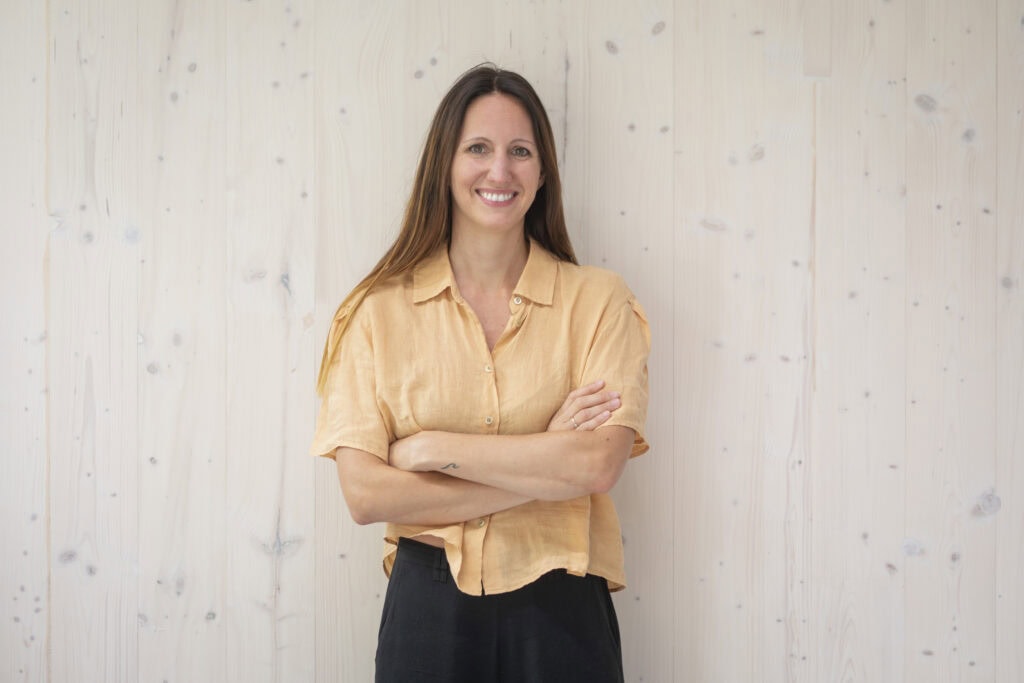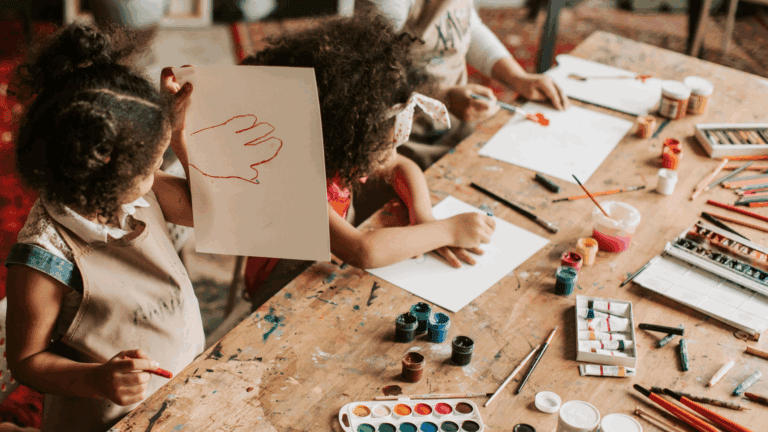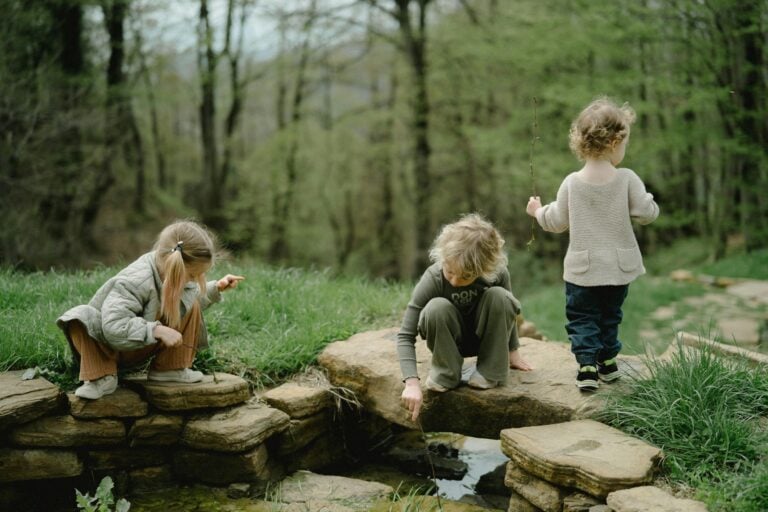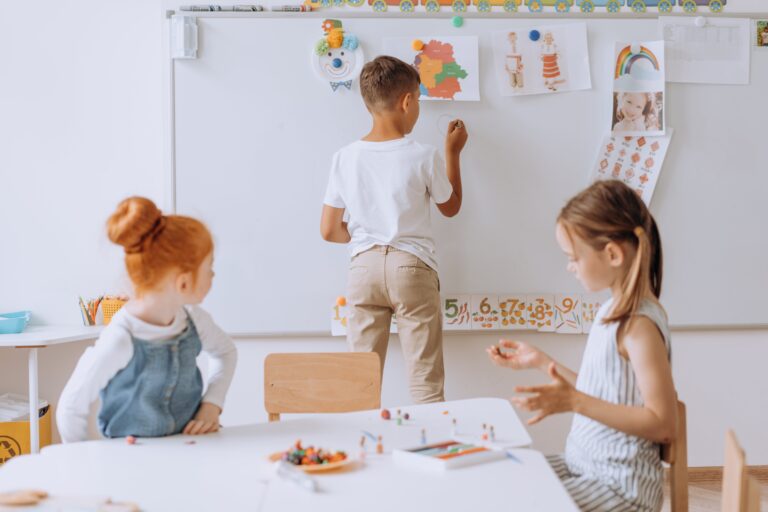4 Traditional Schooling Alternatives: Homeschooling, Unschooling, Online Schooling, or something better? A Parent’s Guide.
Our Challenge As Parents
As parents, we’re living through an unprecedented time of educational transformation. The rigid structures that defined schooling for generations are being questioned, reimagined, and sometimes abandoned entirely. More families than ever are exploring alternatives to conventional education, seeking approaches that honour their children’s natural development whilst preparing them for an uncertain future.
Yet navigating these alternatives can feel overwhelming. Among the many options available to families today, three approaches have captured particular attention: homeschooling, online schooling, and unschooling. Each represents a different philosophy about how children learn best, yet each comes with its own promises and challenges. How do we choose what’s truly right for our children when each path seems to offer something valuable whilst also presenting limitations?
In this article, we’ll explore these three popular alternatives to traditional schooling, examining what draws families to each approach and where they might fall short. We’ll then discover how Schola Vera emerges as a fourth option. One that bridges the gap between individual freedom and community learning, offering something entirely new in the educational landscape.
Homeschooling and Its Hidden Challenges
Many families first discover homeschooling through images of cosy mornings around the kitchen table, personalised lessons that spark wonder, and the freedom to explore the world at their own pace. The appeal feels immediate and profound: individual attention, family values integration, and escape from institutional pressures.
Homeschooling does offer genuine advantages. Children receive one-on-one instruction tailored to their unique learning rhythms. Families can travel, pursue deep interests, and structure their days according to their natural flow rather than artificial bell schedules. Parents can weave their values and beliefs into daily learning, creating education that feels authentic to their family’s vision.
Yet many families discover unexpected challenges that no homeschooling blog prepared them for. The isolation can feel suffocating. Not just for children, but for entire families. Morning playgrounds sit empty because most children are in institutional settings. Finding like-minded families for regular socialisation becomes a constant struggle. The weight of responsibility for a child’s entire education creates pressure many parents hadn’t anticipated, leading to family tensions that no curriculum guide addresses.
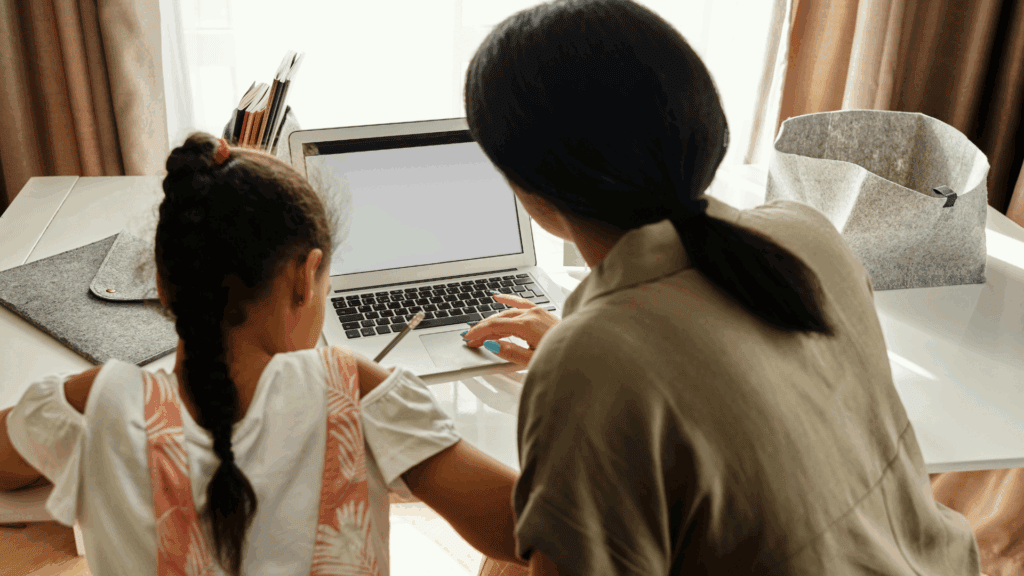
More troubling is the realisation that most homeschooling approaches simply transplant traditional academic frameworks into the home environment. Whether following Cambridge, Oxford, or other established programmes, children are still marching toward predetermined learning objectives rather than following their natural curiosity. The promise of freedom feels hollow when academic checklists still govern daily life.
I’ve developed what some might consider an unpopular opinion about homeschooling: it combines two potentially limiting elements: keeping children at “home” whilst maintaining “schooling” structures. Children naturally need to explore beyond their family environment, discovering the world through interaction with diverse people and places. When we confine them to home whilst imposing academic curricula, we may be limiting rather than liberating their educational experience.
Online Schooling: The Digital Classroom Promise
The appeal of online schooling feels undeniable in our connected age. Families can access quality education regardless of geographic location, opening opportunities for travel or rural living. Children develop digital literacy skills whilst learning at their own pace through professionally designed content. For many families, it offers the structure of traditional schooling without the institutional constraints.
Yet the reality often falls short of the promise. More concerning for families considering online schooling are the findings about teacher-student relationships. Multiple studies have shown that the quality of teacher-student relationships – crucial for effective learning – suffers significantly in online-only environments (Study 1 / Study 2). The personal connection between teacher and student, which forms the foundation for trust, motivation, and authentic learning, simply cannot be replicated through screens. We parents all know this from endless Zoom meetings during COVID-19 and beyond.

This relational deficit creates a cascade of challenges. Children find themselves isolated from meaningful human interaction, spending hours daily tethered to devices when they actually learn best through hands-on exploration, movement, and real-world engagement. Extended screen time affects attention spans, sleep patterns, and overall well-being, whilst knowledge gained through digital interfaces often remains abstract, disconnected from the embodied understanding that comes from direct experience.
Perhaps most importantly, online schooling fails to address the fundamental question: are we preparing children for life or for more schooling? When education happens primarily through screens, children may become overly dependent on digital interfaces rather than developing the independent thinking, creativity, and real-world problem-solving skills they’ll need to thrive in an increasingly complex world.
Unschooling: The Radical Trust Experiment
Then there’s unschooling. Perhaps the most misunderstood educational approach of our time. Based on profound trust in children’s innate wisdom and curiosity, unschooling families abandon curricula, tests, and formal instruction entirely. Children pursue their interests freely, learning through real-world experiences, play, and self-directed exploration.
This approach rests on a revolutionary premise: humans are natural learners who don’t require external motivation or structured instruction. Watch any toddler exploring their environment, and you’ll see this truth in action. They learn to walk, talk, and navigate complex social interactions without formal teaching. Unschooling extends this natural learning process throughout childhood and beyond.
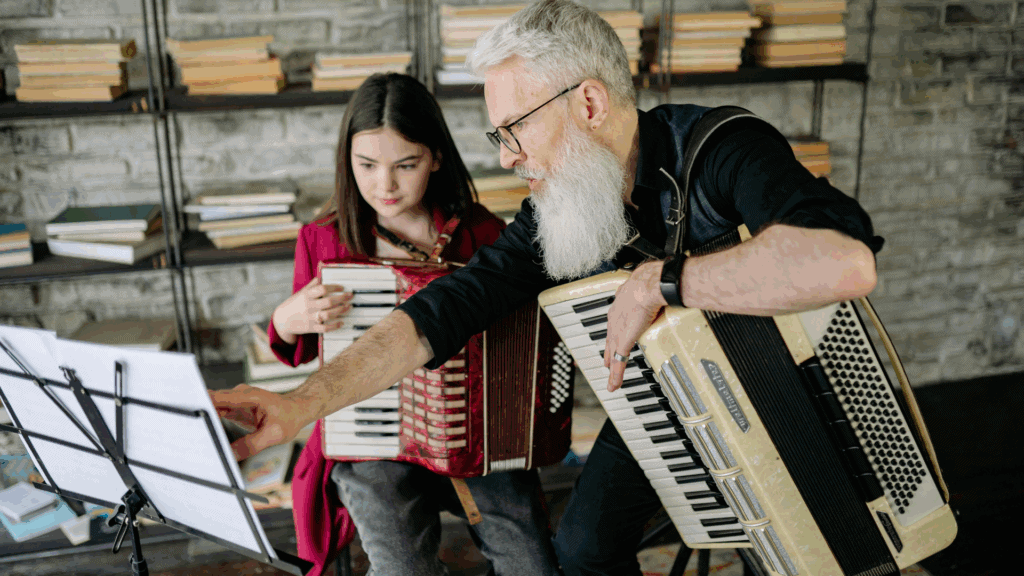
The philosophy feels both ancient and radical. Children choose what, when, and how they learn based on genuine interest rather than adult-imposed requirements. Learning happens through living: cooking, travelling, building, exploring, and engaging with authentic challenges. Without grades, tests, or external pressures, children maintain their natural love of learning that traditional education so often extinguishes.
André Stern, who never attended school and became a successful author, musician, and speaker, embodies this approach beautifully. His journey demonstrates that when children are trusted to direct their own learning, they often exceed what any curriculum could prescribe. They develop self-direction skills, real-world competence, and most importantly, they preserve the wonder and enthusiasm for learning that makes life genuinely fulfilling.
The challenge for many families today isn’t with unschooling itself, but with creating the rich, diverse communities that make this approach thrive. In our current social structure, where most children attend institutional settings, families often find themselves working harder to create the connections and opportunities that support natural learning. The challenge isn’t isolation per se, but rather the energy and time required to build these meaningful relationships and learning networks. The solution?
Schola Vera: Where Natural Learning Meets Community
This is where Schola Vera emerges with a simple but powerful recognition: what if we could preserve everything beautiful about child-led learning whilst providing the community connection that humans naturally crave?
Schola Vera shares unschooling’s fundamental trust in children’s innate wisdom whilst addressing the practical challenges many families face today. We believe children learn best when following their authentic interests and curiosity, but we also understand that learning is naturally social. Children don’t just need freedom to explore. They need companions to explore with, mentors to learn from, and opportunities to share their discoveries.
At Schola Vera, children spend their mornings in mixed-age groups, following their curiosity through real-world exploration. Some might spend weeks investigating why leaves change colour, moving seamlessly between microscope observations, artistic representations, and scientific experiments. Others become fascinated with architecture, building elaborate structures whilst naturally encountering concepts of physics, mathematics, and design.
The magic happens not in the individual pursuits – though these matter deeply – but in the intersection of curiosity within community. Children inspire each other, collaborate on projects, share discoveries, and learn from peers across age groups. Questions about butterflies might spark investigations into migration patterns, whilst photography projects document these discoveries, creating a rich web of interconnected learning.
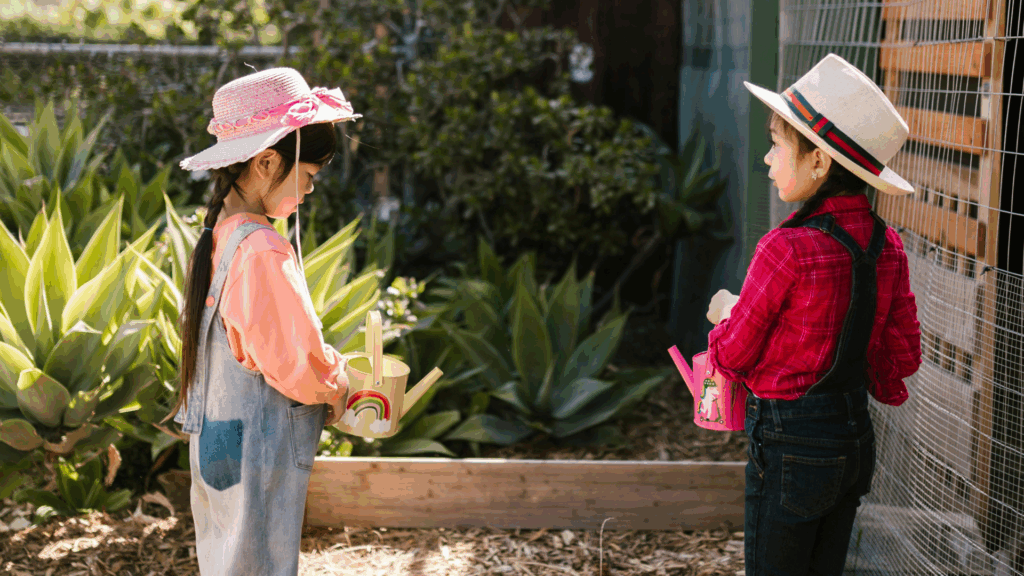
Unlike traditional schools, we don’t separate children artificially by age or ability. Our mixed-age environment mirrors the real world, where learning happens through relationships with people of all ages and stages. The role of adults shifts fundamentally from directors to facilitators. We observe closely, offer resources when requested, and create environments that inspire exploration. We trust children’s natural learning processes whilst providing the professional guidance and rich materials that support deep investigation.
Most importantly, we prioritise emotional well-being as the foundation for all learning. Before any academic achievement, we ensure children feel secure, valued, and emotionally supported. Our daily rhythms include practices that help children develop emotional awareness and regulation skills, creating the safety necessary for genuine risk-taking and growth.
Building the Learning Village
The African proverb “It takes a village to raise a child” speaks to a truth that modern families instinctively understand but often struggle to create. Having experienced the challenges of creating rich learning communities firsthand, I understand what many unschooling and alternative education families face. It’s not that children learning outside traditional institutions are isolated. Rather, it’s the considerable effort required to cultivate the kind of vibrant, multi-generational learning community that supports authentic development.
When most children attend institutional settings, finding these diverse connections becomes increasingly challenging for families. The local potter who might teach ceramics, the historian who could share stories, the musician willing to mentor. These relationships require time and energy to cultivate that many families find difficult to maintain alongside their daily responsibilities.
Schola Vera addresses this challenge directly. We’ve already built the vibrant community that makes natural learning flourish. Children engage daily with inspiring peers whilst maintaining complete freedom for self-directed exploration. Parents don’t need to seek out mentors or arrange learning opportunities. The rich community already exists, waiting to welcome new members who value authentic childhood development.
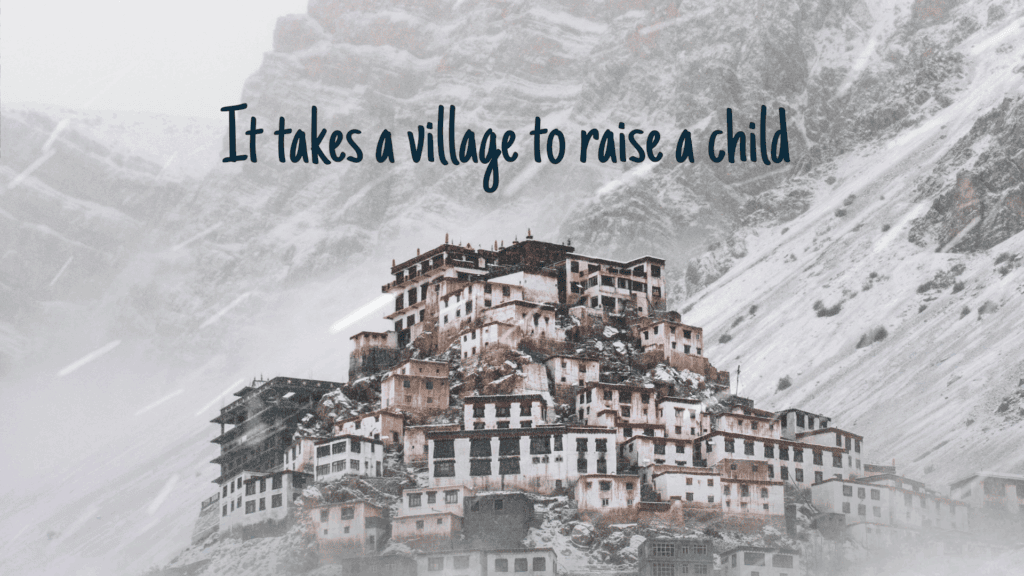
Finding Your Family’s Educational Path
As you consider these educational pathways, the question isn’t which approach is objectively best, but rather which aligns most closely with your family’s values and your child’s unique needs. Each approach offers something valuable: homeschooling provides individual attention, online schooling offers flexibility, and unschooling honours natural learning.
The key is honest reflection about what you hope education will accomplish. Are you seeking academic achievement, personal fulfilment, social development, or creative expression? Different approaches emphasise different outcomes, and understanding your priorities helps guide your choice.
For families drawn to the philosophy of natural learning but seeking the rich community that makes this approach truly flourish, Schola Vera offers a unique synthesis. We provide the trust and freedom of unschooling within a supportive community, professional guidance without academic pressure, and the social connections essential for optimal development.
The choice is yours, but the vision is clear: education can be joyful, meaningful, and deeply connected to the fullness of human experience.
Ready to Give Your Child the Education That Changes Everything?
At Schola Vera, we don’t just talk about natural learning. We live it every day. Our curriculum isn’t a collection of subjects to be mastered or boxes to be ticked. It’s a carefully crafted environment where your child’s innate curiosity, creativity, and joy can flourish without the pressure of grades, tests, or standardised expectations.
When children learn through play, follow their genuine interests, and develop within supportive mixed-age communities, something remarkable happens: they don’t just acquire knowledge. They fall in love with learning itself. They develop the confidence, resilience, and self-direction that will serve them throughout their lives, whatever path they choose.
This is what education can be when we trust children’s natural wisdom and create the conditions for authentic growth. This is what will change everything for your child.
